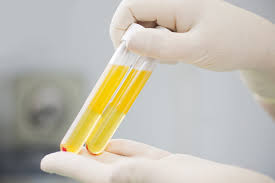12000 Chinese blood plasma contaminated
February 9, 2019 | Expert Insights

The National Health Commission in China has warned hospitals to suspend the use of 12,299 50ml bottles of plasma after it was found to be contaminated with HIV. The samples were taken from China’s second-biggest medical products manufacturer, China Meheco Xinxing.
Background
Human immunodeficiency (HIV) is a virus that targets and alters the immune system. When HIV targets and infiltrates white blood cells, it reduces the body's ability to combat other diseases. Without treatment, the infection might progress to acquired immunodeficiency syndrome (AIDS) which is not curable. HIV virus can be transmitted from one person to another when:
· a person receives HIV-contaminated blood in a blood transfusion,
· When a person is exposed to needles that are contaminated with HIV-infected blood in the process of injecting drugs,
· When a person (eg. a health care worker) is injured with blood-contaminated needles, syringes, razor blades or other sharp instruments,
· Unsterile or dirty razors, knives, needles or other instruments are used during cultural practices such as circumcision, scarification, or bloodletting.
Cases of AIDS were found in blood transfusion recipients and contaminated blood products have caused large numbers of haemophiliacs to become infected with HIV and hepatitis C.
Previously, risks were ignored and Governments failed to take appropriate action. Pharmaceutical companies and leading clinicians did not appropriately share, or even hid, information about risks - from patients and patient groups. The Chinese health sector is highly corrupted even though they have state of the art technology within the industry.
Analysis
China is facing its latest medical scandal after a large batch of human blood plasma treatment was found to be contaminated with HIV. The batch of intravenous immunoglobulin – an immune therapy treatment made with antibodies from blood plasma – was produced by China’s second-biggest medical blood products manufacturer, the state-owned Shanghai Xinxing Pharmaceutical Company.
A statement from the National Medical Products Administration said tests for HIV, hepatitis B and hepatitis C all turned out negative. The National Health Commission (NHC) warned hospitals to immediately suspend use of the batch after the provincial health commission and disease control centre of eastern China’s Jiangxi detected traces of HIV in it.
A representative of Jiangxi Provincial Disease Control Centre said that it had not yet discovered any cases of patients having contracted HIV. 10 hospitals had reported back saying they had yet to find any patients who had contracted HIV. The faulty batch comprised 12,229 50ml bottles of plasma due to expire in June 2021. The batches were previously inspected and approved by the Shanghai Municipal Food and Drug Administration, which hasn’t made a public statement.
Wang Yuedan, deputy director of the Department of Immunology at Peking University’s School of Medicine, said that the existence of HIV antibodies is generally considered to be a sign of HIV infection. Wang suspects that the contamination came from blood-plasma donors.
Shanghai Xinxing is a biotech company specialising in the production and sale of blood-based medical products, according to its official website. It is controlled by the listed China Meheco Group, one of China’s biggest pharmaceutical firms, which is in turn owned by the ChinaGeneral Technology Group, a state-owned enterprise.
The incident came less than a month after it was revealed that 145 children in eastern China’s Jiangsu province were treated with expired polio vaccines, which triggered widespread protests from parents and the investigation of 17 local officials. In July’s vaccine scandal, 252,600 faulty rabies vaccines were made by Changchun Changsheng Bio-technology, one of China’s biggest vaccine firms and administered to thousands of toddlers. In March 2008, major recalls of heparin, a substance widely used as an injectable anticoagulant, were announced by the U.S. Food and Drug Administration (FDA) due to contamination of the raw heparin stock imported from China. In September 2008, 54000 babies were hospitalised after milk and infant formula were found to be adulterated with melamine.
Following a series of scandals, China is now drafting a new health act that not only guarantees the right to health care as a fundamental human right, but also provides provisions to strengthen the management of the country’s vaccine products and policies.
Assessment
Our assessment is that the recurrence of medical scandals in China is likely due to the lack of supervision and structural distortion of the system. Authorities are likely circumventing internal controls and compliance policies. It can be noted that medical corruption has become one of the top complaints from the Chinese public and very few people have been charged with crimes by the government. In addition to corruption and poor-quality controls, it can be noted that foreign companies are kept out of Chinese markets.








Comments